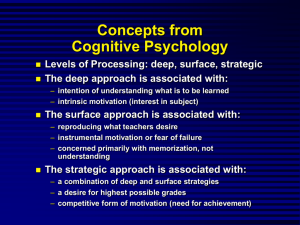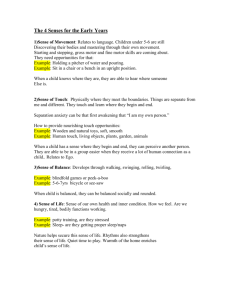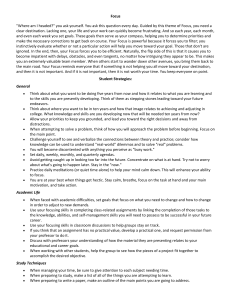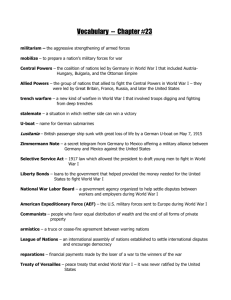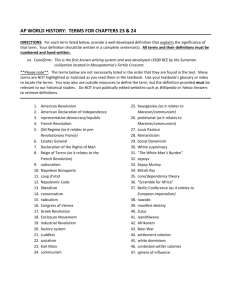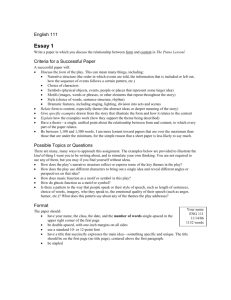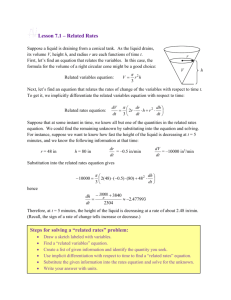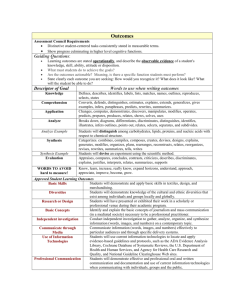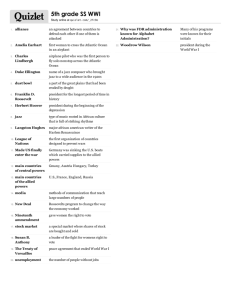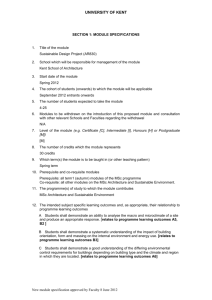AP WORLD HISTORY: TERMS FOR CHAPTERS 28, 29, & 30
advertisement
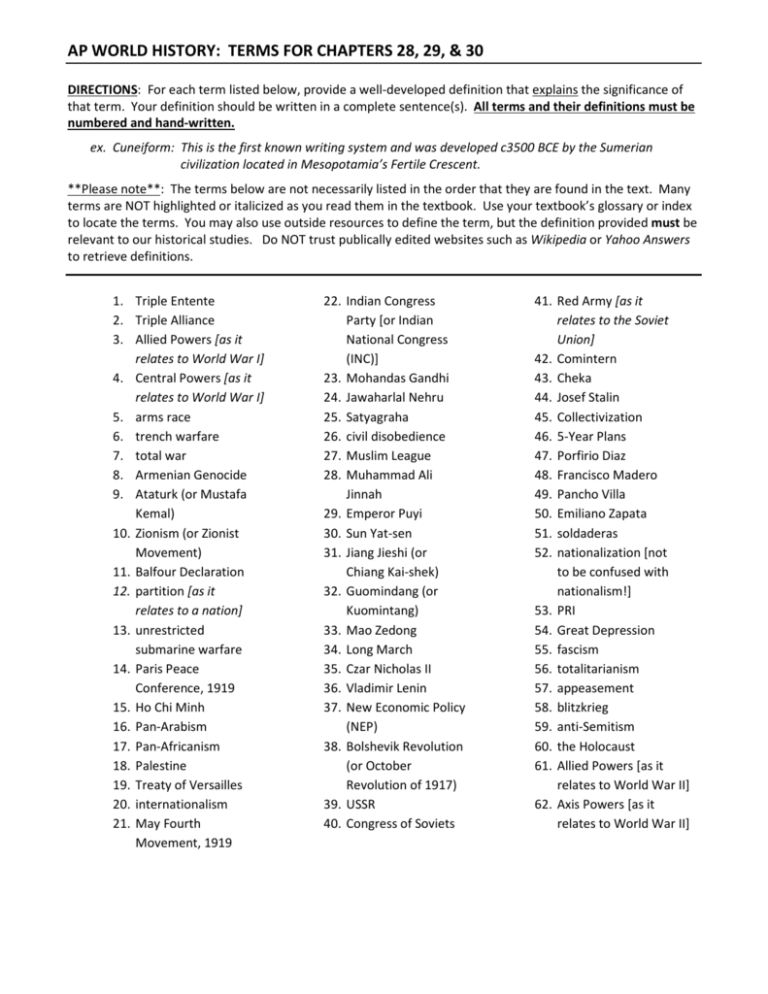
AP WORLD HISTORY: TERMS FOR CHAPTERS 28, 29, & 30 DIRECTIONS: For each term listed below, provide a well-developed definition that explains the significance of that term. Your definition should be written in a complete sentence(s). All terms and their definitions must be numbered and hand-written. ex. Cuneiform: This is the first known writing system and was developed c3500 BCE by the Sumerian civilization located in Mesopotamia’s Fertile Crescent. **Please note**: The terms below are not necessarily listed in the order that they are found in the text. Many terms are NOT highlighted or italicized as you read them in the textbook. Use your textbook’s glossary or index to locate the terms. You may also use outside resources to define the term, but the definition provided must be relevant to our historical studies. Do NOT trust publically edited websites such as Wikipedia or Yahoo Answers to retrieve definitions. 1. Triple Entente 2. Triple Alliance 3. Allied Powers [as it relates to World War I] 4. Central Powers [as it relates to World War I] 5. arms race 6. trench warfare 7. total war 8. Armenian Genocide 9. Ataturk (or Mustafa Kemal) 10. Zionism (or Zionist Movement) 11. Balfour Declaration 12. partition [as it relates to a nation] 13. unrestricted submarine warfare 14. Paris Peace Conference, 1919 15. Ho Chi Minh 16. Pan-Arabism 17. Pan-Africanism 18. Palestine 19. Treaty of Versailles 20. internationalism 21. May Fourth Movement, 1919 22. Indian Congress Party [or Indian National Congress (INC)] 23. Mohandas Gandhi 24. Jawaharlal Nehru 25. Satyagraha 26. civil disobedience 27. Muslim League 28. Muhammad Ali Jinnah 29. Emperor Puyi 30. Sun Yat-sen 31. Jiang Jieshi (or Chiang Kai-shek) 32. Guomindang (or Kuomintang) 33. Mao Zedong 34. Long March 35. Czar Nicholas II 36. Vladimir Lenin 37. New Economic Policy (NEP) 38. Bolshevik Revolution (or October Revolution of 1917) 39. USSR 40. Congress of Soviets 41. Red Army [as it relates to the Soviet Union] 42. Comintern 43. Cheka 44. Josef Stalin 45. Collectivization 46. 5-Year Plans 47. Porfirio Diaz 48. Francisco Madero 49. Pancho Villa 50. Emiliano Zapata 51. soldaderas 52. nationalization [not to be confused with nationalism!] 53. PRI 54. Great Depression 55. fascism 56. totalitarianism 57. appeasement 58. blitzkrieg 59. anti-Semitism 60. the Holocaust 61. Allied Powers [as it relates to World War II] 62. Axis Powers [as it relates to World War II]

